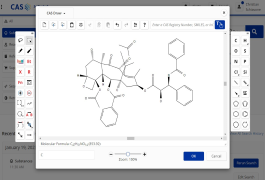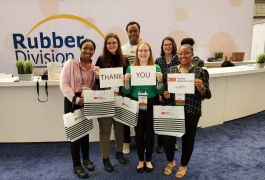How to Advocate for Science

Every year, the U.S. Congress and state legislatures consider programs and legislation that have impacts on everything from federal funding for scientific research to environmental sustainability to homeland security. Few scientists (approximately 5%) and even fewer chemists serve in public office. That means critical decisions affecting science education, research, technology, and many areas of concern are in the hands of attorneys, businesspeople, and professionals who know very little about science.
How can you as a chemistry student make your voice heard among the miasma of shouted slogans and accusations of false news?
Here are five tips and resources on how to speak out on the issues you care about.
1. Start small
Ultimately, all politics is local, and voters like you remain the most compelling reason for congressional action. You’re not just a student; you are a key member of a robust intellectual, innovative constituency. Expressing what directly affects you as a citizen and the decisions you make about your research and career can influence the decisions of policymakers.
You can reach out to your local representative in our national and state capitols, write op-eds in your local newspaper, or visit a town hall meeting. These may seem like small things, but political leaders pay a lot of attention to these actions.
2. Identify your request
What do you want your audience to do with the information you provide? Do you want them to vote for a piece of legislation? Use alternative fuels? Support science education? It’s important to have a clear call to action in any form of communication you use and center everything you say and do on that point.
People respond much better to a clear task than to a complex issue. Climate change, for example, is a hugely complex issue that involves individual choices, economic and societal drivers, and elaborate atmospheric modeling. The layperson can easily get lost in the morass of information; however, advocating support for tax subsidies for solar panel usage is more easily digestible. You can lead your effort with a specific call to action, and then explain how it benefits the Earth and its people. Your audience will come away knowing what to do and why.
3. Use plain, but precise, language
Make sure your message is crystal clear. “Less invasions, more equations” is a popular slogan for posters because it clearly states a position that is easily understood.
Stick to vocabulary your audience already feels comfortable with. To the uninitiated, “dihydrogen monoxide” is a mysterious compound whose inhalation can cause death. On the other hand, “water” is a familiar substance that everyone can easily identify.
Likewise, the word “chemical” is unnerving to many people and overly broad (really, what isn’t a chemical?). So talk about specific chemicals, or categories (“reactants”, “bases”, “gases”, etc.).
4. Know your audience
Who are you trying to reach, and what do they want? If you are talking to legislators, they are probably interested in things like the economy and societal growth. You can frame your argument by talking about how innovations in science lead to more jobs and a stronger economy.
If you’re writing an op-ed for the local newspaper, your readers usually have immediate, day-to-day concerns. But they might be interested in how small investments in solar panels can lead to big savings in their electric bills, or how better science education can help their children thrive in higher-paying jobs down the line.
5. Take advantage of ACS resources
ACS has lots of resources to help you speak your piece in government. Visit the Act4Chemistry Legislative Action Network to stay informed on high-priority issues affecting the chemical enterprise and get tips on speaking to lawmakers.
You can also hone your communication skills with ACS Webinars. A series of videos is available to ACS members that covers science and communicating to both science and non-science audiences. You can learn how to create infographics, articulate your research, and improve your online presence using social media.
Communication training courses are offered in a variety of venues to help you understand how to effectively communicate your research to the public, the media, policymakers, and others in your community. Contact externalaffairs@acs.org for more information.
Remember, you don’t need a nationwide platform to have an impact. Use your passion and the resources available to get involved!
Act 4 Chemistry
The Act4Chemistry Advocacy Toolkit includes based resources that help you make your opinions on science policy heard. The advocacy toolkit allows you to find your lawmakers and speak for science in a straightforward and simple manner by:
- Writing and calling your policymakers
- Participating in town hall meetings
- Visiting your Congressperson in district or DC offices
- Hosting your lawmakers
- Working with the media and your community on science-related stories
- Inviting your policymakers to join the Congressional Chemistry Caucus
If you would like to participate in the Act4Chemistry Network, you can visit the Advocacy tab on the www.acs.org homepage or email ACS External Affairs and Communications at advocacy@acs.org.




